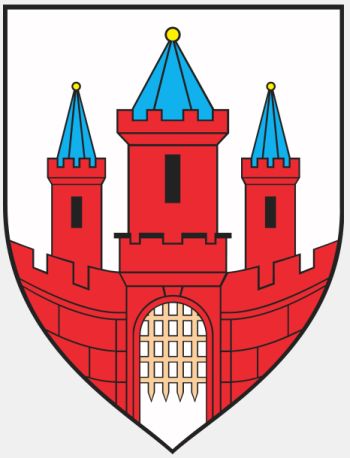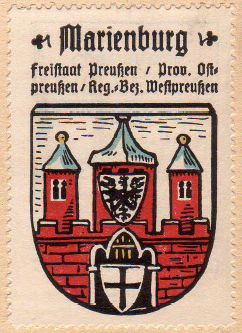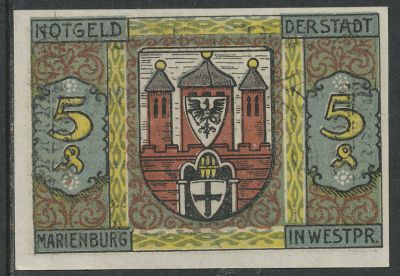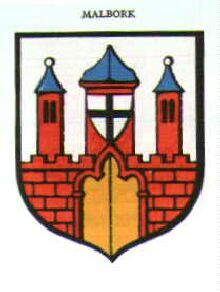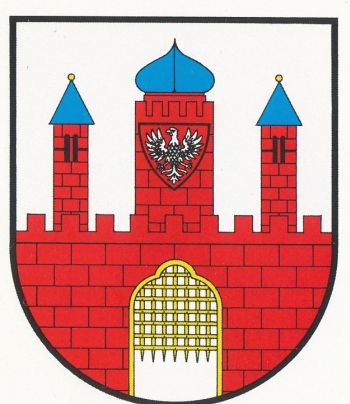Malbork: Difference between revisions
Knorrepoes (talk | contribs) No edit summary |
Knorrepoes (talk | contribs) m (Text replace - "[[Literature" to "{{media}} [[Literature") |
||
| Line 28: | Line 28: | ||
|} | |} | ||
{{media}} | |||
[[Literature]] : Plewako and Wanag, 1994; Hupp, 1894 | [[Literature]] : Plewako and Wanag, 1994; Hupp, 1894 | ||
Revision as of 01:19, 9 July 2014
| Heraldry of the World Civic heraldry of Poland - Herbarz Miast Polskich |
MALBORK
Province: Pomorze
County : Malbork
Origin/meaning :
The arms of Malbork show a fortified city gate with three towers.
The oldest known seal of the city dates from the 14th century and already shows a fortified city wall. In this case with a closed gate and on the middle tower a small shield with the cross of the Teutonic Knights, who ruled the city at the time. Another seal, known from 1399-1446 only shows the gate, not the small shield. On a late 15th century seal the gate is already placed in a shield and again with the small shield with the cross.
From the 16th century until 1772 the seals show the coat of arms always without a small shield. Only when the town became part of Prussia in 1772 the seals showed the crowned coat of arms with the Prussian eagle as supporter. In the late 19th century the city used two small shields, the Prussian eagle on the main tower and the Teutonic cross in the gate. After 1945 the Prussian eagle disappeared and until the 1980s the city used only the Teutonic cross on the main tower. In the early 1990s the cross was replaced by the Polish eagle on the main tower and presently the city uses the arms without any additional shield.
| The arms in the Kaffee Hag albums +/- 1925 |
Local money from the 1920s |
| The arms as shown in the 1960s. |
The arms as shown in 1994. |
Contact and Support
Partners:
Your logo here ?
Contact us
© since 1995, Heraldry of the World, Ralf Hartemink 
Index of the site
Literature : Plewako and Wanag, 1994; Hupp, 1894

